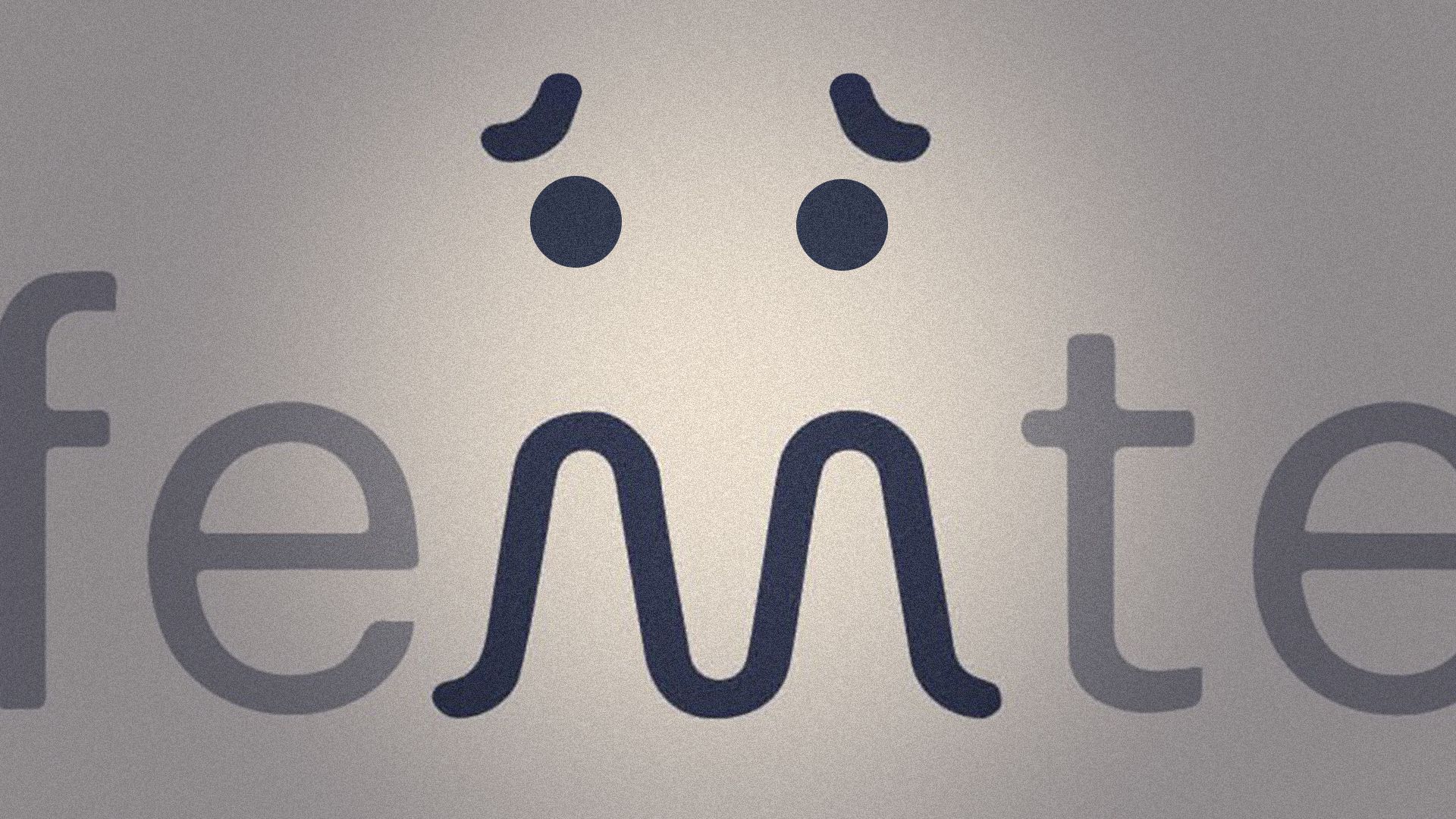| |
| |
| |
| |
| |
| Axios Vitals |
| By Tina Reed · May 23, 2023 |
| Good morning, Vitals readers. Today's newsletter is 1,069 words or a 4-minute read. |
| |
| |
| 1 big thing: Surgeon general issues advisory about social media risks for kids |
 |
|
| Illustration: Sarah Grillo/Axios |
| |
| U.S. Surgeon General Vivek Murthy is issuing a warning today that social media poses a threat to kids' mental health, escalating calls for new safeguards aimed at minors. Why it matters: The advisory adds to scrutiny over the effects of excessive use and harmful content, which has been blamed for consequences ranging from disrupting kids' sleep to promoting suicidal thoughts. - Murthy told Axios he's calling on policymakers, platforms and parents to create safe limits. He's previously said he believes age 13 is "too early" for kids to join social media.
- The White House is concurrently releasing plans that include creating an interagency task force on kids' online safety, establishing best practices for teaching digital literacy and habits and supporting efforts to stymie harassment and child abuse online.
What he's saying: "What kids are experiencing today on social media is unlike anything prior generations have had to contend with," Murthy told Axios. - "People have compared themselves for millennia," he said. "But never to this degree with the sheer overwhelming volume of content that's coming at our kids 24/7. When that happens — especially at this vulnerable stage of development — we have to worry about the negative impact on our children."
- Though Murthy's recommendations aren't binding, they can drive public health debates and provide a rallying point for regulators, providers and policymakers.
The big picture: The American Psychological Association called on Murthy last year to warn about the potential risks. And a steady drumbeat of research has chronicled negative impacts on youths' self-esteem, their ability to maintain attention, and how online content can promote feelings of exclusion. - An estimated 95% of teens ages 13–17, and 40% of those 8–12, are on social media, where they're commonly exposed to extreme, inappropriate, and harmful content, per Murthy's advisory.
- Those who spend more than three hours a day on social media face twice the risk of experiencing depression and anxiety — and a survey of teens shows they spend an average of 3.5 hours a day on various platforms.
- More than one-third of teens ages 13–17 report using social media "almost constantly" and nearly two-thirds of teens say they use social media every day. One-third or more of girls ages 11–15 say they feel "addicted" to certain platforms.
- "This is not an issue we can afford to wait years to take action on. It's an urgent issue now," Murthy said.
Go deeper. |
    |
| |
| |
| 2. Dems think twice about clawing back COVID funds |
 |
|
| Illustration: Aïda Amer/Axios |
| |
| Congressional Democrats are having second thoughts about taking back unspent coronavirus funds as part of a debt limit deal, concerned that doing so could have serious consequences for myriad public health initiatives, Axios' Victoria Knight and Maya Goldman report. Why it matters: The COVID-19 relief funds were supposed to be the low-hanging fruit in any debt ceiling compromise and have been overshadowed by more contentious issues like spending caps and Medicaid work requirements. - House Appropriations Ranking Member Rosa DeLauro (D-Conn.) recently released a list of the programs and initiatives that would be affected if the funds were rescinded. Among them:
- Provider relief fund for safety-net and rural hospitals and nursing homes
- Medical supplies in the Strategic National Stockpile
- Veterans Affairs health care services funding
By the numbers: As of Jan. 31, $90.5 billion — or 2% — of COVID-19 relief funds were unobligated, according to the GAO. Our thought bubble: Compared with the country's current $925 billion deficit, unspent COVID-19 funds are a pretty small piece of the puzzle. A version of this story was published first on Axios Pro. Get news like this by subscribing. Use code POLICY100 |
    |
| |
| |
| 3. End of the line for FemTec Health |
 |
|
| Illustration: Shoshana Gordon/Axios. Logo: Femtec Health |
| |
| The women's health startup FemTec Health is out of money and winding down operations, according to public legal documents and social media posts seen by Axios' Erin Brodwin. Why it matters: It's a culmination of troubles plaguing FemTec, once envisioned as the launchpad for a one-stop women's health shop, Erin writes. Details: A document emailed to several shareholders and dated May 12 says FemTec "has decided to discontinue its business" and is transferring all its property and assets to an unaffiliated assignee named FemTec Health LLC. - Signed by FemTec CEO Kimon Angelides, the document also says FemTec is "indebted to various creditors and is unable to pay its debts in full."
Catch up quick: Axios' previous reporting covered allegations that Angelides misrepresented the company's financial and operational status. - In a letter viewed by Axios earlier this month, the former CEO of FemTec subsidiary Birchbox demanded $2 million from FemTec and Angelides.
- That follows actions taken in January by a group of former leaders at FemTec subsidiary Ava who filed with Switzerland's debt enforcement office to recoup wages they allege were not paid.
A version of this story was published first in Axios Pro Health Tech deals. Start a free trial at AxiosPro.com. |
    |
| |
| |
| A message from Axios |
| The latest policy insights and reporting |
| |
 |
| |
| Axios Pro: Policy cuts through the noise and provides you the most accurate, trusthworthy policy news. Subscribe today. |
| |
| |
| 4. Quote du jour: World Health Assembly kicks off |
 |
|
| Photo: Jean-Guy Python/AFP via Getty Images |
| |
| "A commitment from this generation (to a pandemic accord) is important, because it is this generation that experienced how awful a small virus could be." — WHO chief Tedros Adhanom Ghebreyesus on Monday at the World Health Assembly gathering in Geneva, according to Reuters. Member states are drafting a treaty aimed at preventing another pandemic which will be up for adoption at next year's assembly. |
    |
| |
| |
| 5. More Americans skipped the doctor last year |
 Data: Source: Federal Reserve; Chart: Axios Visuals The share of Americans who skipped medical treatment last year because of the cost rose substantially from the lows of 2020 and 2021, per a Federal Reserve Survey out Monday, Axios' Emily Peck writes. - The survey also found that in families with income less than $25,000, 75% reported being in good health, compared with 91% for those with income of $100,000 or more.
What happened: Inflation walloped Americans across income levels in 2022, causing many to cut back on spending — and that includes health care, an area people feel they can cut when times are tight. - The most commonly skipped form of medical treatment was the dentist, followed by seeing a doctor and paying for a prescription.
- 35% of Americans said their financial situation was worse in 2022 than the year prior, per the survey. That's the largest share on record since the Fed started asking the question a decade ago, Axios' Courtenay Brown reported.
What to watch: If the line on that chart rises more next year. Millions of Americans are expected to lose Medicaid access this year as pandemic-related continuous coverage provisions end. - Those without insurance are twice as likely to skip treatment, the Fed survey found.
|
    |
| |
| |
| A message from Axios |
| The latest policy insights and reporting |
| |
 |
| |
| Axios Pro: Policy cuts through the noise and provides you the most accurate, trusthworthy policy news. Subscribe today. |
| |
| Thanks for reading Axios Vitals, and to senior editor Adriel Bettelheim and senior copy editor Bryan McBournie. Please ask your friends and colleagues to sign up. |
 | | Dive deeper into the future of health care | | |
No comments